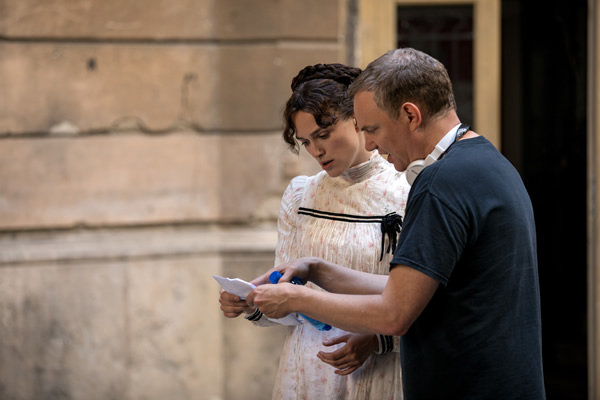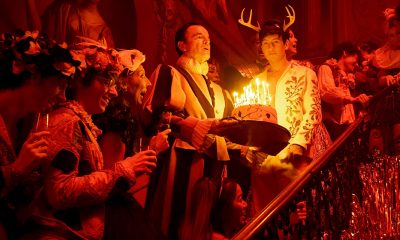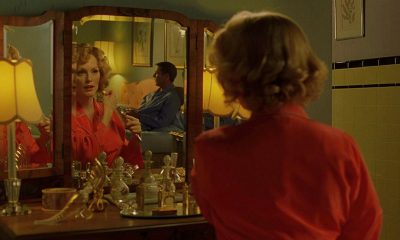a&e features
Out filmmaker honors late partner with period drama ‘Colette’
Early 20th century literary figure subject of glossy new biopic
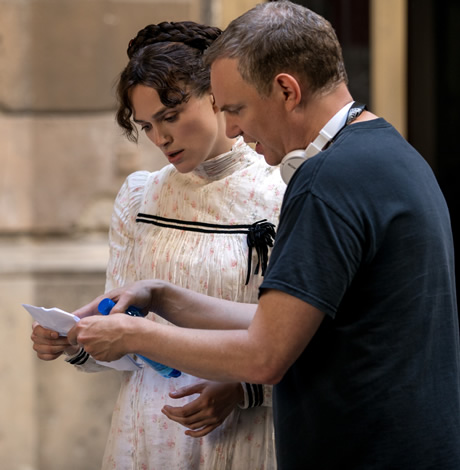
The sumptuous and sensual new movie “Colette” is really a love letter from filmmaker Wash Westmoreland to his late husband, the writer and director Richard Glatzer, as well as a tribute to the revolutionary spirit of the legendary French writer herself.
“My late husband was an avid reader. I never knew anyone who could get into books like Richard did,” Westmoreland says. “He just got obsessed with Colette. He read her fiction and started reading biographies and said there’s a film in here. Then I started reading and I agreed with him. This could be an amazing movie.”
But other projects came first, along with a serious health issue. In 2011, Glatzer was diagnosed with ALS, a progressive neurodegenerative disease often known as “Lou Gehrig’s disease”
“For the last four years of his life,” Westmoreland says, “Richard lived with ALS which is a tremendously difficult disease. It’s very destructive to the body, but psychologically he was as strong as a rock. He never had any depression or self-pity. He just wanted to keep making movies. We made two movies during the last years of his life. The last one was ‘Still Alice.’”
Co-directed and co-written by Westmoreland and Glatzer, “Still Alice” (2014) starred Julianne Moore as Alice Howland, a linguistics professor who is diagnosed with Alzheimer’s Disease. Moore’s searing performance won numerous awards for best actress, including the Academy Award, the Golden Globe, the BAFTA Film Award and the Dorian Award from GALECA, the Society of LGBTQ Entertainment Critics.
“By the time the movie was going out into the world he was very ill. We watched the Oscars from the ICU at Cedars-Sinai Hospital,” Westmoreland says. “We snuck in a bottle of Champagne and when Julianne won we whooped so loud they thought it was a medical emergency and all these orderlies came running in. It was a nice moment, but it was an extremely difficult time.”
At the time, Glatzer was communicating with an iPad text-to-voice app that he activated with his toes. After the Oscar ceremony ended, Westmoreland asked his husband what he wanted to do next. Glatzer slowly typed out C-O-L-E-T-T-E. The movie opens next week in D.C.-area theaters.
“He died two weeks later. I knew I had to make the movie for him.”
Known to the world simply as Colette, Sidonie-Gabrielle Colette (played by Keira Knightley) was born in the provincial French town of Saint-Sauveur in 1873. She married Henri Gauthier-Villars (Dominic West), who wrote under the name of “Willy,” and he introduced her to the glittering literary and social world of turn-of-the-century “Belle Époque” Paris. After a tumultuous marriage with multiple infidelities on both sides, Willy and Colette divorced in 1910.
During their marriage and throughout both of her subsequent marriages, Colette had numerous affairs with women, including a long-term relationship with Mathilde de Morny, Marquise de Belbeuf, known as “Missy.” A sculptor and painter, Missy shocked Parisian society by openly having affairs with women, smoking cigars in public and dressing as a man.
Colette wrote until her death in 1953 and during her long career worked as a mime, journalist, actress and novelist. She was nominated for the Nobel Prize in Literature in 1948 and is now best known for her novel “Gigi” (1944) which became the basis for the famous Lerner and Loewe musical.
“Colette lived an incredible life,” Westmoreland says. “She was really a woman well ahead of her time.”
When he and Glatzer began working on the screenplay in 2001, they decided that Colette’s first marriage would be a natural narrative for a feature film. The final screenplay, which Westmoreland finished with Rebecca Lenkiewicz (“Disobedience”), focused on Colette’s marriage to Willy and relationship with Missy, and included the publication of the infamous “Claudine” novels.
“There are so many modern elements to her story,” Westmoreland says. “He had the gift of the gab and would take over the room with an anecdote. But he really wasn’t so good at sitting down and writing an extended piece. So he hired various ghostwriters to work for him, four or five struggling writers who worked in his ‘factory,’ rather like Warhol. Willy would pitch the idea, then he would edit, and then he would sign them, but he didn’t write them. It was sham, really, but he got away with it with his tremendous energy and personality and his huge projection into the social space.”
One of Willy’s ghostwriters was Colette herself. He got her to write for him a series of four novels that became huge bestsellers and claimed he was the author.
When the Claudine novels, witty and brazen stories loosely based on Colette’s own life, became a success, Willy established himself as a very modern “literary entrepreneur.”
“Once the books were a hit, Willie was a marketing genius,” Westmoreland says. “He created a brand: Claudine cigarettes, Claudine perfume, Claudine soap and Claudine dresses. It was like ‘Star Wars’ toys; George Lucas legendarily made more money from the toys than the movies.”
In addition, Colette and Willy also become the first modern celebrity couple—the toast of the Belle Époque.
“They were like John and Yoko or Brangelina,” he says. “Willie know how to feed the public’s fascination by dropping scandalous hints about their private life into the novels. People become fascinated with it, like a modern reality TV show.”
Westmoreland says Colette was one of the first women to write explicitly about sexuality from a woman’s perspective, a notion he says was groundbreaking. He used those aspects of Colette’s story to convince Knightly to take the challenging leading role, telling her Colette was a sexual pioneer who was having sex with men, women and a male-identified woman who can be seen as a forerunner of today’s trans community.
“It was so exciting for her to take on this character who was so courageous in the way she lived her life and so honest in the way he spoke about it.”
Colette’s revolutionary spirit also inspired the casting of some of the minor roles.
Westmoreland cast actor Jake Graf, a trans man, to play a cisgender character, Gaston De Caillavet, a rival of Willly’s. He also cast actress Rebecca Root, a trans woman, to play a cisgender woman, the famous novelist and hostess Rachilde. The movie also features Ray Panthaki, who’s Asian-British, playing Pierre Veber, a member of Willy’s factory who was white in real life; and Johnny K. Palmer, a black actor, playing another white figure, Paul Héon, who was Willy’s secretary.
“This does not happen frequently in making period pieces and too rarely happens in modern narratives, as well,” he says. “Since Colette was part of challenging convention and opening up the world, it felt right that the casting of the movie should reflect that. And besides, they are just great actors.”
a&e features
Visit Cambridge, a ‘beautiful secret’ on Maryland’s Eastern Shore
New organization promotes town’s welcoming vibe, LGBTQ inclusion

CAMBRIDGE, Md. — Driving through this scenic, historic town on Maryland’s Eastern Shore, you’ll be charmed by streets lined with unique shops, restaurants, and beautifully restored Victorian homes. You’ll also be struck by the number of LGBTQ Pride flags flying throughout the town.
The flags are a reassuring signal that everyone is welcome here, despite the town’s location in ruby red Dorchester County, which voted for Donald Trump over Kamala Harris by a lopsided margin. But don’t let that deter you from visiting. A new organization, Proudly Cambridge, is holding its debut Pride event this weekend, touting the town’s welcoming, inclusive culture.
“We stumbled on a beautiful secret and we wanted to help get the word out,” said James Lumalcuri of the effort to create Proudly Cambridge.
The organization celebrates diversity, enhances public spaces, and seeks to uplift all that Cambridge has to share, according to its mission statement, under the tagline “You Belong Here.”
The group has so far held informal movie nights and a picnic and garden party; the launch party is June 28 at the Cambridge Yacht Club, which will feature a Pride celebration and tea dance. The event’s 75 tickets sold out quickly and proceeds benefit DoCo Pride.
“Tickets went faster than we imagined and we’re bummed we can’t welcome everyone who wanted to come,” Lumalcuri said, adding that organizers plan to make “Cheers on the Choptank” an annual event with added capacity next year.
One of the group’s first projects was to distribute free Pride flags to anyone who requested one and the result is a visually striking display of a large number of flags flying all over town. Up next: Proudly Cambridge plans to roll out a program offering affirming businesses rainbow crab stickers to show their inclusiveness and LGBTQ support. The group also wants to engage with potential visitors and homebuyers.
“We want to spread the word outside of Cambridge — in D.C. and Baltimore — who don’t know about Cambridge,” Lumalcuri said. “We want them to come and know we are a safe haven. You can exist here and feel comfortable and supported by neighbors in a way that we didn’t anticipate when we moved here.”

Lumalcuri, 53, a federal government employee, and his husband, Lou Cardenas, 62, a Realtor, purchased a Victorian house in Cambridge in 2021 and embarked on an extensive renovation. The couple also owns a home in Adams Morgan in D.C.
“We saw the opportunity here and wanted to share it with others,” Cardenas said. “There’s lots of housing inventory in the $300-400,000 range … we’re not here to gentrify people out of town because a lot of these homes are just empty and need to be fixed up and we’re happy to be a part of that.”
Lumalcuri was talking with friends one Sunday last year at the gazebo (affectionately known as the “gayzebo” by locals) at the Yacht Club and the idea for Proudly Cambridge was born. The founding board members are Lumalcuri, Corey van Vlymen, Brian Orjuela, Lauren Mross, and Caleb Holland. The group is currently working toward forming a 501(c)3.
“We need visibility and support for those who need it,” Mross said. “We started making lists of what we wanted to do and the five of us ran with it. We started meeting weekly and solidified what we wanted to do.”
Mross, 50, a brand strategist and web designer, moved to Cambridge from Atlanta with her wife three years ago. They knew they wanted to be near the water and farther north and began researching their options when they discovered Cambridge.
“I had not heard of Cambridge but the location seemed perfect,” she said. “I pointed on a map and said this is where we’re going to move.”
The couple packed up, bought a camper trailer and parked it in different campsites but kept coming back to Cambridge.
“I didn’t know how right it was until we moved here,” she said. “It’s the most welcoming place … there’s an energy vortex here – how did so many cool, progressive people end up in one place?”
Corey van Vlymen and his husband live in D.C. and were looking for a second home. They considered Lost River, W.Va., but decided they preferred to be on the water.
“We looked at a map on both sides of the bay and came to Cambridge on a Saturday and bought a house that day,” said van Vlymen, 39, a senior scientist at Booz Allen Hamilton. They’ve owned in Cambridge for two years.
They were drawn to Cambridge due to its location on the water, the affordable housing inventory, and its proximity to D.C.; it’s about an hour and 20 minutes away.
Now, through the work of Proudly Cambridge, they hope to highlight the town’s many attributes to residents and visitors alike.
“Something we all agree on is there’s a perception problem for Cambridge and a lack of awareness,” van Vlymen said. “If you tell someone you’re going to Cambridge, chances are they think, ‘England or Massachusetts?’”
He cited the affordability and the opportunity to save older, historic homes as a big draw for buyers.
“It’s all about celebrating all the things that make Cambridge great,” Mross added. “Our monthly social events are joyful and celebratory.” A recent game night drew about 70 people.
She noted that the goal is not to gentrify the town and push longtime residents out, but to uplift all the people who are already there while welcoming new visitors and future residents.
They also noted that Proudly Cambridge does not seek to supplant existing Pride-focused organizations. Dorchester County Pride organizes countywide Pride events and Delmarva Pride was held in nearby Easton two weeks ago.
“We celebrate all diversity but are gay powered and gay led,” Mross noted.
To learn more about Proudly Cambridge, visit the group on Facebook and Instagram.
What to see and do
Cambridge, located 13 miles up the Choptank River from the Chesapeake Bay, has a population of roughly 15,000. It was settled in 1684 and named for the English university town in 1686. It is home to the Harriet Tubman Museum, mural, and monument. Its proximity to the Blackwater National Wildlife Refuge makes it a popular stop for birders, drawn to more than 27,000 acres of marshland dubbed “the Everglades of the north.”
The refuge is walkable, bikeable, and driveable, making it an accessible attraction for all. There are kayaking and biking tours through Blackwater Adventures (blackwateradventuresmd.com).
Back in town, take a stroll along the water and through historic downtown and admire the architecture. Take in the striking Harriet Tubman mural (424 Race St.). Shop in the many local boutiques, and don’t miss the gay-owned Shorelife Home and Gifts (421 Race St.), filled with stylish coastal décor items.
Stop for breakfast or lunch at Black Water Bakery (429 Race St.), which offers a full compliment of coffee drinks along with a build-your-own mimosa bar and a full menu of creative cocktails.
The Cambridge Yacht Club (1 Mill St.) is always bustling but you need to be a member to get in. Snapper’s on the water is temporarily closed for renovations. RaR Brewing (rarbrewing.com) is popular for craft beers served in an 80-year-old former pool hall and bowling alley. The menu offers burgers, wings, and other bar fare.
For dinner or wine, don’t miss the fantastic Vintage 414 (414 Race St.), which offers lunch, dinner, wine tasting events, specialty foods, and a large selection of wines. The homemade cheddar crackers, inventive flatbreads, and creative desserts (citrus olive oil cake, carrot cake trifle) were a hit on a recent visit.
Also nearby is Ava’s (305 High St.), a regional chain offering outstanding Italian dishes, pizzas, and more.
For something off the beaten path, visit Emily’s Produce (22143 Church Creek Rd.) for its nursery, produce, and prepared meals.
“Ten minutes into the sticks there’s a place called Emily’s Produce, where you can pay $5 and walk through a field and pick sunflowers, blueberries, you can feed the goats … and they have great food,” van Vlymen said.
As for accommodations, there’s the Hyatt Regency Chesapeake Bay (100 Heron Blvd. at Route 50), a resort complex with golf course, spa, and marina. Otherwise, check out Airbnb and VRBO for short-term rentals closer to downtown.
Its proximity to D.C. and Baltimore makes Cambridge an ideal weekend getaway. The large LGBTQ population is welcoming and they are happy to talk up their town and show you around.
“There’s a closeness among the neighbors that I wasn’t feeling in D.C.,” Lumalcuri said. “We look after each other.”
a&e features
James Baldwin bio shows how much of his life is revealed in his work
‘A Love Story’ is first major book on acclaimed author’s life in 30 years

‘Baldwin: A Love Story’
By Nicholas Boggs
c.2025, FSG
$35/704 pages
“Baldwin: A Love Story” is a sympathetic biography, the first major one in 30 years, of acclaimed Black gay writer James Baldwin. Drawing on Baldwin’s fiction, essays, and letters, Nicolas Boggs, a white writer who rediscovered and co-edited a new edition of a long-lost Baldwin book, explores Baldwin’s life and work through focusing on his lovers, mentors, and inspirations.
The book begins with a quick look at Baldwin’s childhood in Harlem, and his difficult relationship with his religious, angry stepfather. Baldwin’s experience with Orilla Miller, a white teacher who encouraged the boy’s writing and took him to plays and movies, even against his father’s wishes, helped shape his life and tempered his feelings toward white people. When Baldwin later joined a church and became a child preacher, though, he felt conflicted between academic success and religious demands, even denouncing Miller at one point. In a fascinating late essay, Baldwin also described his teenage sexual relationship with a mobster, who showed him off in public.
Baldwin’s romantic life was complicated, as he preferred men who were not outwardly gay. Indeed, many would marry women and have children while also involved with Baldwin. Still, they would often remain friends and enabled Baldwin’s work. Lucien Happersberger, who met Baldwin while both were living in Paris, sent him to a Swiss village, where he wrote his first novel, “Go Tell It on the Mountain,” as well as an essay, “Stranger in the Village,” about the oddness of being the first Black person many villagers had ever seen. Baldwin met Turkish actor Engin Cezzar in New York at the Actors’ Studio; Baldwin later spent time in Istanbul with Cezzar and his wife, finishing “Another Country” and directing a controversial play about Turkish prisoners that depicted sexuality and gender.
Baldwin collaborated with French artist Yoran Cazac on a children’s book, which later vanished. Boggs writes of his excitement about coming across this book while a student at Yale and how he later interviewed Cazac and his wife while also republishing the book. Baldwin also had many tumultuous sexual relationships with young men whom he tried to mentor and shape, most of which led to drama and despair.
The book carefully examines Baldwin’s development as a writer. “Go Tell It on the Mountain” draws heavily on his early life, giving subtle signs of the main character John’s sexuality, while “Giovanni’s Room” bravely and openly shows a homosexual relationship, highly controversial at the time. “If Beale Street Could Talk” features a woman as its main character and narrator, the first time Baldwin wrote fully through a woman’s perspective. His essays feel deeply personal, even if they do not reveal everything; Lucian is the unnamed visiting friend in one who the police briefly detained along with Baldwin. He found New York too distracting to write, spending his time there with friends and family or on business. He was close friends with modernist painter Beauford Delaney, also gay, who helped Baldwin see that a Black man could thrive as an artist. Delaney would later move to France, staying near Baldwin’s home.
An epilogue has Boggs writing about encountering Baldwin’s work as one of the few white students in a majority-Black school. It helpfully reminds us that Baldwin connects to all who feel different, no matter their race, sexuality, gender, or class. A well-written, easy-flowing biography, with many excerpts from Baldwin’s writing, it shows how much of his life is revealed in his work. Let’s hope it encourages reading the work, either again or for the first time.
a&e features
Looking back at 50 years of Pride in D.C
Washington Blade’s unique archives chronicle highs, lows of our movement
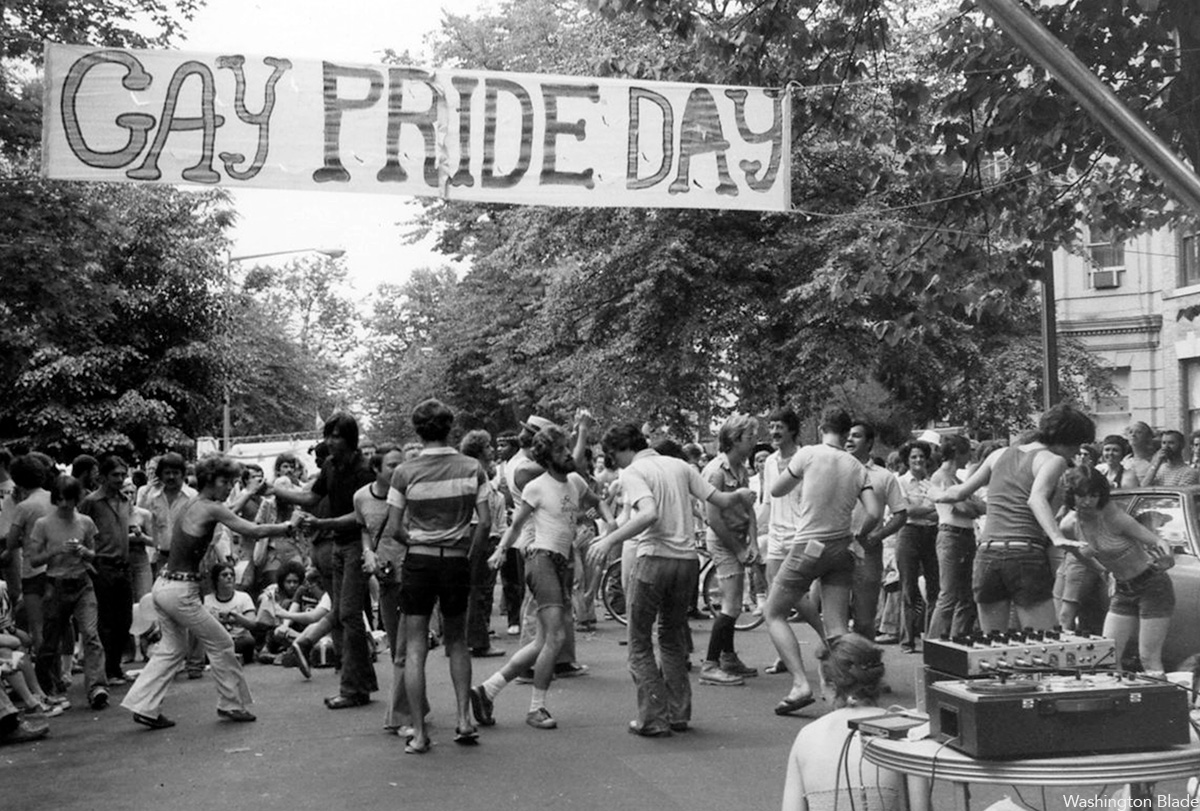
To celebrate the 50th anniversary of LGBTQ Pride in Washington, D.C., the Washington Blade team combed our archives and put together a glossy magazine showcasing five decades of celebrations in the city. Below is a sampling of images from the magazine but be sure to find a print copy starting this week.
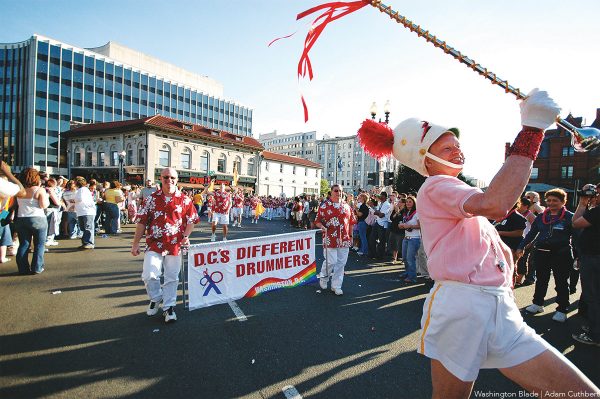
The magazine is being distributed now and is complimentary. You can find copies at LGBTQ bars and restaurants across the city. Or visit the Blade booth at the Pride festival on June 7 and 8 where we will distribute copies.
Thank you to our advertisers and sponsors, whose support has enabled us to distribute the magazine free of charge. And thanks to our dedicated team at the Blade, especially Photo Editor Michael Key, who spent many hours searching the archives for the best images, many of which are unique to the Blade and cannot be found elsewhere. And thanks to our dynamic production team of Meaghan Juba, who designed the magazine, and Phil Rockstroh who managed the process. Stephen Rutgers and Brian Pitts handled sales and marketing and staff writers Lou Chibbaro Jr., Christopher Kane, Michael K. Lavers, Joe Reberkenny along with freelancer and former Blade staffer Joey DiGuglielmo wrote the essays.

The magazine represents more than 50 years of hard work by countless reporters, editors, advertising sales reps, photographers, and other media professionals who have brought you the Washington Blade since 1969.
We hope you enjoy the magazine and keep it as a reminder of all the many ups and downs our local LGBTQ community has experienced over the past 50 years.
I hope you will consider supporting our vital mission by becoming a Blade member today. At a time when reliable, accurate LGBTQ news is more essential than ever, your contribution helps make it possible. With a monthly gift starting at just $7, you’ll ensure that the Blade remains a trusted, free resource for the community — now and for years to come. Click here to help fund LGBTQ journalism.
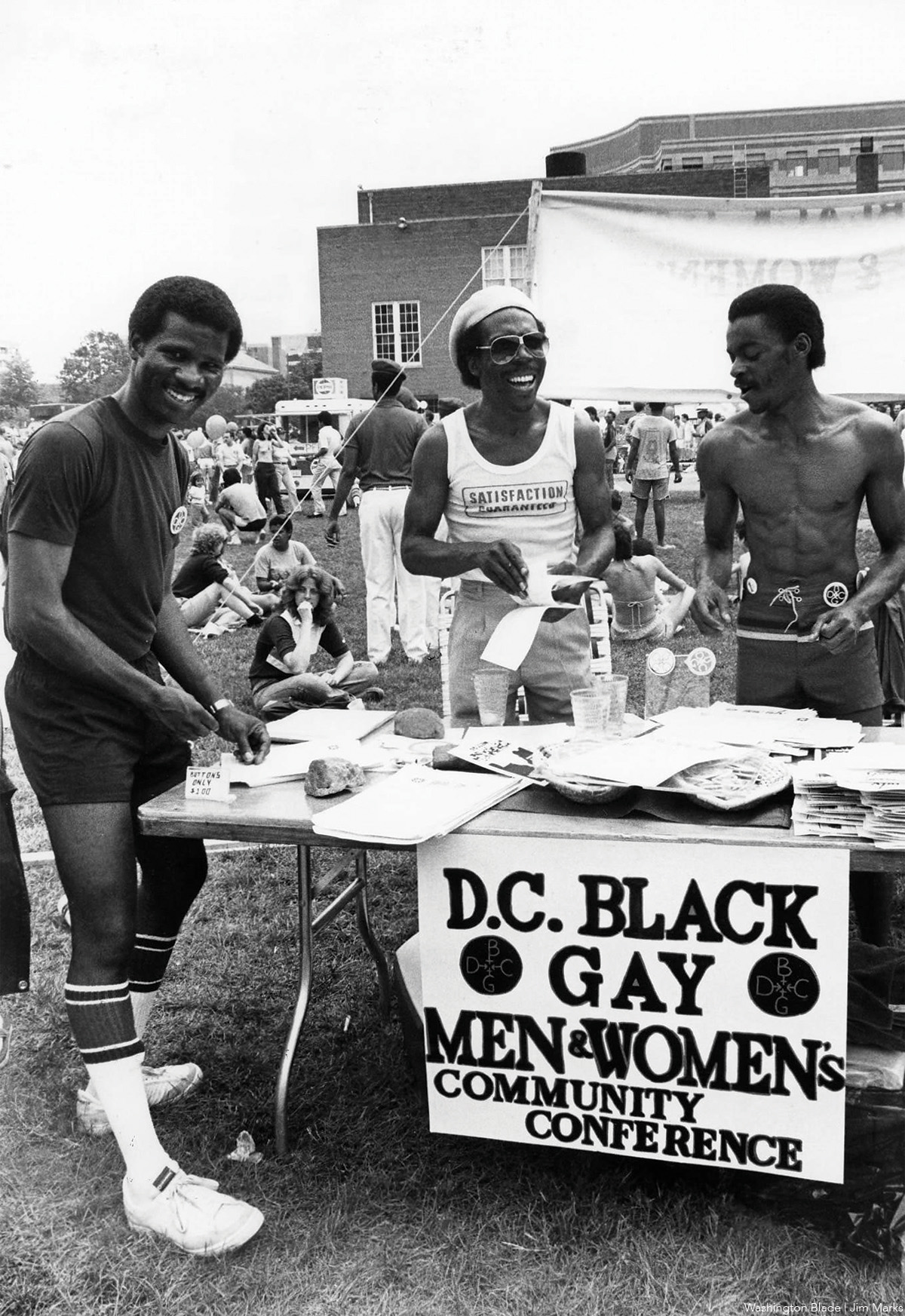
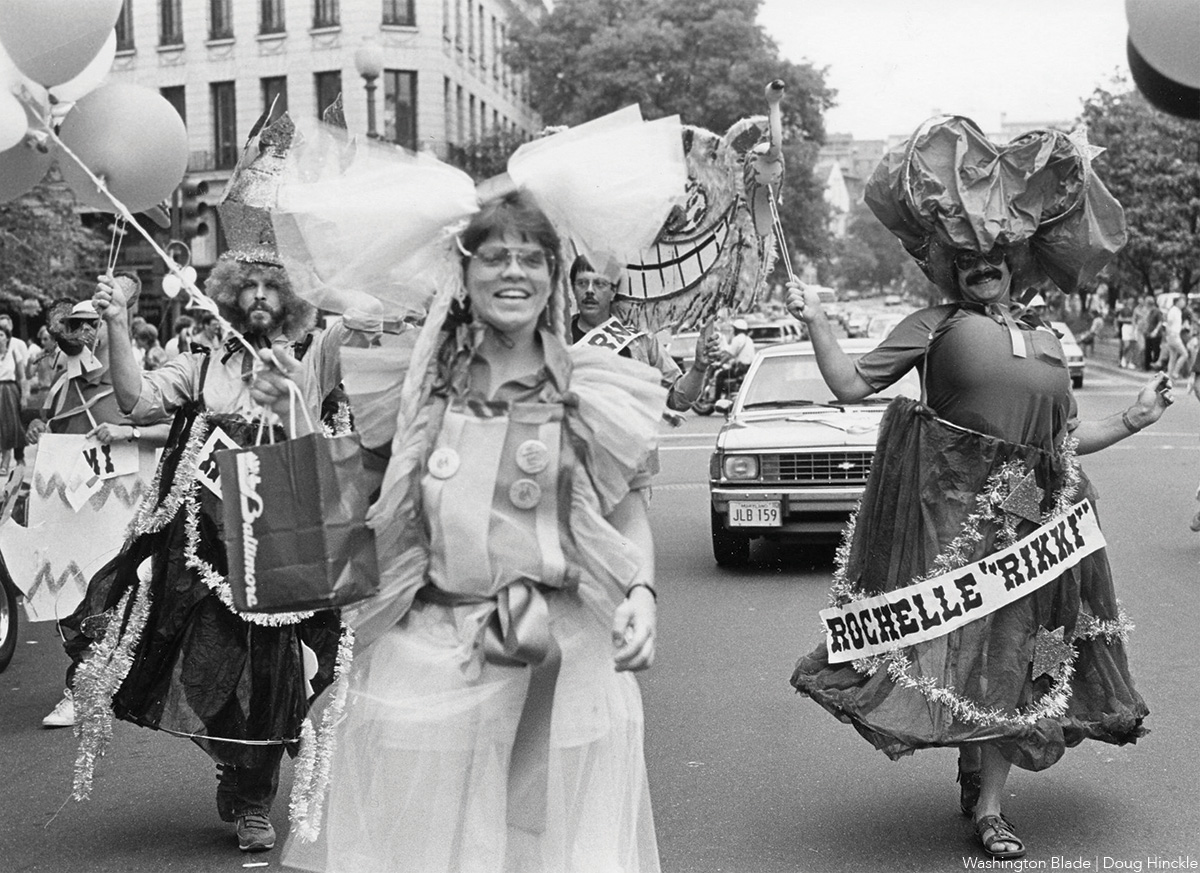


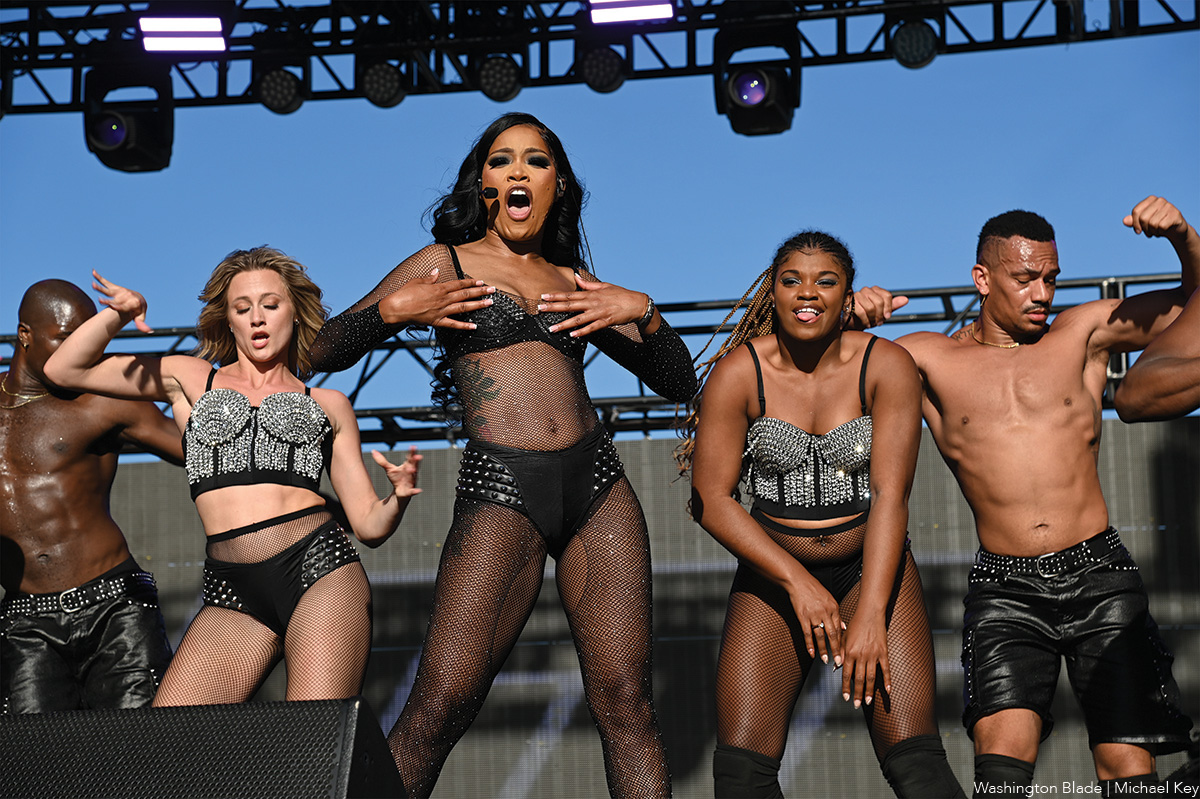
-

 U.S. Supreme Court4 days ago
U.S. Supreme Court4 days agoSupreme Court upholds ACA rule that makes PrEP, other preventative care free
-

 U.S. Supreme Court4 days ago
U.S. Supreme Court4 days agoSupreme Court rules parents must have option to opt children out of LGBTQ-specific lessons
-

 Congress5 days ago
Congress5 days agoSenate parliamentarian orders removal of gender-affirming care ban from GOP reconciliation bill
-

 District of Columbia5 days ago
District of Columbia5 days agoMan sentenced to 15 years in prison for drug deal that killed two DC gay men

